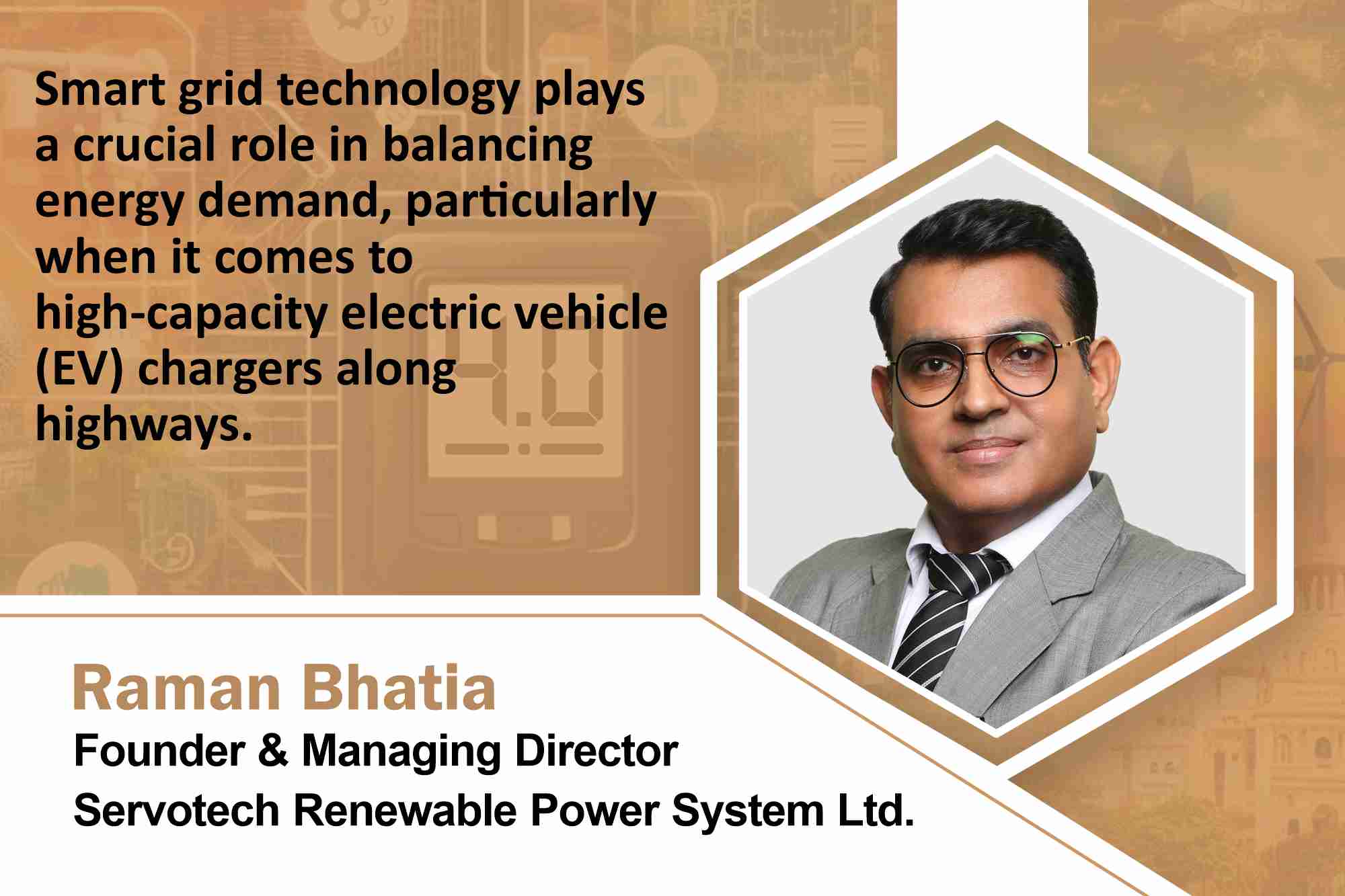Smart grid integration key to building scalable EV charging infra
By Staff Report June 25, 2025 12:11 pm IST
By Staff Report June 25, 2025 12:11 pm IST

With demand surging across highways, cities, and remote areas, smart and adaptive infrastructure will be key not only to stability but also to building trust in the EV ecosystem.
In the wake of India’s acceleration of its EV transition, ultra-fast charging infrastructure must evolve to meet the growing demand. Servotech is addressing this challenge by deploying smart, AI- and IoT-enabled charging systems that ensure grid stability, optimise energy use and support the PM E-Drive scheme to build a robust and nationwide charging network. Raman Bhatia shares his views in talks with EPR.
How can smart grids, AI, and IoT manage energy demand from highway ultra-fast electric vehicle chargers?
Smart grid technology plays a crucial role in balancing energy demand, particularly when it comes to high-capacity electric vehicle (EV) chargers along highways. These chargers can exert sudden pressure on the grid, which is effectively managed by smart systems. We believe that smart grids, combined with IoT-enabled electric vehicle (EV) chargers, enable real-time energy monitoring, dynamic load management, and improved integration with renewable sources. This not only ensures grid stability but also improves the overall charging experience for users.
As EV adoption grows, smart grid integration will be crucial in building a reliable and scalable EV charging infrastructure across India.
Moreover, AI and IoT are game-changers for ultra-fast EV charging. They help manage the load more intelligently by predicting usage patterns, adjusting power distribution, and preventing overloads in real time. Servotech has been developing smart EV chargers that utilise IoT for real-time diagnostics and remote monitoring. This will help operators track charger health, usage trends and energy flow, all from a common dashboard. AI adds another layer by enabling predictive maintenance and dynamic load optimisation, which can prove to be a game changer for grid health. As EV traffic increases, these technologies will be essential in making fast charging not just quick but also efficient, reliable and grid-friendly.
How are you planning to leverage PM E-Drive to deploy EV charging infrastructure nationwide?
Our existing experience with government tenders and public-sector collaborations positions us well to support the rollout of the PM E-Drive scheme. We have already deployed thousands of electric vehicle (EV) chargers and continue to expand our presence. With BHEL as the nodal agency for deploying 72,000 EV chargers across more than 50 highway corridors, we see a vital opportunity to support India’s EV push. While our plans remain confidential, our expertise in manufacturing and turnkey electric vehicle (EV) solutions positions us as a strong contributor to the PM E-Drive scheme. We remain committed to strengthening the nation’s EV infrastructure and accelerating the shift to clean, sustainable mobility.Moreover, at Servotech, we have made it a priority to design EV charging systems that are intelligent, responsive and aligned with modern grid demands. As EV adoption grows, managing electricity distribution efficiently becomes more than a requirement. It becomes a backbone for scalability. That is where smart strategies, such as AI-based load management, time-controlled charging, and real-time monitoring, come into play. These tools help us distribute energy more evenly, reduce peak-time stress, and ensure that the grid and chargers work in sync, not against each other. Over time, as demand surges across highways, cities, and remote zones, we believe that innovative and adaptive infrastructure will be key not only to stability but also to building trust in the EV ecosystem.
How is Servotech addressing the challenge while scaling ultra-fast EV charging infrastructure across India?
Ultra-fast EV chargers demand a massive and sudden surge of power, which can easily strain the grid if not appropriately managed. This is one of the key challenges we had to overcome at Servotech while developing high-capacity charging solutions. It is not just about supplying more power but about doing it intelligently. Problems such as voltage drops, load imbalances, and a lack of real-time coordination can disrupt grid performance. This is the reason behind building smart systems that communicate directly with the grid, adapt to available capacity and shift loads when needed.
The real challenge is scaling this intelligently across the country. As ultra-fast charging becomes the norm, integrating renewable sources, storage solutions, and predictive energy management will be critical to keeping the grid stable and future-ready.
We use cookies to personalize your experience. By continuing to visit this website you agree to our Terms & Conditions, Privacy Policy and Cookie Policy.